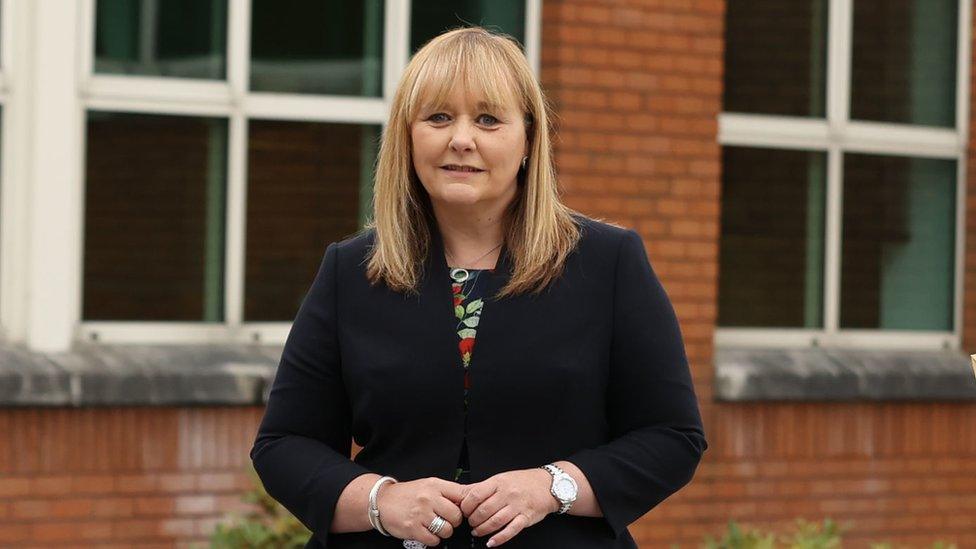NI schools: Ministerial visits halted by industrial action
- Published
- comments

Visits to some schools by the education minister will be halted by industrial action from a union representing many school leaders.
The National Association of Head Teachers (NAHT) is starting action short of strike on Tuesday.
It has told its members not to "cooperate with unsolicited ministerial and senior civil servant" visits.
Five teaching unions in Northern Ireland are taking "unprecedented" joint industrial action over pay.
In February, the unions rejected as "inadequate" a two-year pay offer for the years from 2021 to 2023 from the employers.
Initially, the joint action short of strike by the unions will affect things like school meetings, administrative tasks, lesson plans, refusing to take on any unpaid duties, and participation in board of governors' meetings.
But the NAHT - which represents more than 500 school leaders in Northern Ireland, including principals and vice-principals - has also issued further instructions to its members.
As well as refusing to facilitate visits to schools by the education minister or senior Department of Education (DE) officials, the union also said its members would not "provide information to employers regarding staff participating in industrial action".
They will also not respond to emails, telephone calls or online messages outside of the school day or at lunchtime, apart from "legitimate matters of safeguarding".

Some schools will not cooperate with "unsolicited" visits by Education Minister Michelle McIlveen
NAHT members have also been instructed not to provide information, data or financial planning to employers like DE or the Education Authority (EA).
Teachers have previously been warned by employers that they could be breaking their contract by taking part in action short of strike and lose pay as a result.
But, in a statement, the director of the NAHT in Northern Ireland, Dr Graham Gault, said "the failure of management to address over a decade of pay erosion has brought us to this point".
"In truth, the remuneration for school leaders has been reduced by almost 30%," he continued.
"Not only has this had a devastating impact on the morale and wellbeing of our current principals and vice principals, it has begun to impact in serious ways on both retention and recruitment for the profession."
Inflation and the cost of living has risen sharply in recent months.
But any pay rise for teachers would have to be funded by the Department of Education or the Stormont Executive.
Finance Minister Conor Murphy recently warned that Stormont was set to overspend its budget by over £600m this year, partly due to potential public sector pay pressures.
- Published6 October 2022

- Published9 May 2022
